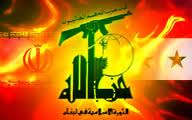 Syrian rebels outside Damascus said Tuesday that thousands of Hezbollah and Iraqi fighters are massing on the outskirts of the capital in what appears to be a prelude to a large-scale ground invasion against towns they have held for months.
Syrian rebels outside Damascus said Tuesday that thousands of Hezbollah and Iraqi fighters are massing on the outskirts of the capital in what appears to be a prelude to a large-scale ground invasion against towns they have held for months.
“Planes are dropping off fully armed fighters from Hezbollah and the Iraqi Fadl Brigades,” said opposition activist Abu Yasser.
Hezbollah is a Lebanon-based terrorist group; the Fadl Brigades are Iranian-trained Shiite Muslim militants from Iraq. Both groups are likely destined for the fight in al-Qusayr, a town near the Lebanese border that is at the center of the rebels’ supply routes for ammo and fighters, Yasser said.
The rebels have held the town for more than a year and have been defending their position against the Syrian military for weeks.
“People are concerned over a large-scale massacre once they capture al-Qusayr,” he said.
The reports come as France said Tuesday it has confirmed that the nerve gas sarin was used “multiple times and in a localized way” in Syria, including at least once by the regime. It was the most specific claim by any Western power about chemical weapons attacks in the 27-month-old conflict.
Rebels based in the Damascus suburb of East Ghouta, the bread basket of the capital, have seen an influx of hundreds of thousands of Syrians fleeing the fighting, according to Yasser and other activists.
Analysts say Hezbollah has been fighting for Syrian dictator Bashar Assad in Homs, Aleppo and al-Qusayr but believe the scope of Hezbollah’s involvement is exaggerated.
“We have heard reports that (Hezbollah) have forces in Aleppo, so it seems to me that the numbers are too high – these numbers don’t tally with the actual capacity of Hezbollah,” said Fawaz Gerges, director of the Middle East Center at the London School of Economics.
“Still, make no mistake about it, Hezbollah is in it for the long haul … until victory,” he added.
Hezbollah is backed by weapons and money from Iran. In addition to committing terror attacks against Americans and Israelis, it has fought two wars against Israel from its base in Lebanon on the northern part of the Israeli border. Iran uses Syria to transit weapons to the group, including thousands of missiles aimed at Israel.
“Hezbollah is fully engaged in the battlefield,” Gerges said. “And this is a major shift. It’s no longer them trying to protect villages along the border in Lebanon; it’s waging battle alongside the Syrian government forces … willing to sustain casualties and shoulder the consequences.”
Hezbollah’s leader, Hassan Nasrallah, has said publicly that the group’s existence depends on defeated a rebellion of Sunni Muslims against Assad, a member of a Shiite Muslim offshoot known as Alawites.
Hezbollah, also made up of Shiite Muslims, is fighting in Syria not to defend the Assad regime, Gerges says, but to defend its position in Lebanon, which would be threatened if Syria is overtaken by Sunnis
Hezbollah’s television station Al-Manar aired a report entitled “Terrorists’ strongholds fall successively in Qusayr, East Ghouta,” in which an Al-Manar reporter with the Syrian army confirmed the operation taking place. Reporting from the southern Damascus suburb of Sidi Makdad, which borders East Ghouta, the reporter said that the campaign to clear Sidi Makdad of terrorists “coincides with comprehensive operations in (East) Ghouta under the rubric ‘encirclement, surprise and the launch of painful strikes.’ ”
Rebel leaders are moving more fighters into the area to try and hang onto it. Syrians in East Ghouta – under siege since Thursday – are bracing for an onslaught that has already killed more than 80,000 civilians, according to the United Nations.
The Zebdeen Coordination Council, a group of activists in this East Ghouta town, posted an update on Facebook reporting that the Syrian military is ringing the area to try to keep supplies from getting to the rebels, including flour to make bread.
“The embargo by the Assad regime on liberated sections of Ghouta takes place with the goal of bringing it to its knees and storming it,” the posting read. “And now the regime is preparing its most deadly campaign yet on the cities and towns of East Ghouta supported by Shiite militias from Iraq and Lebanon.”
The posting could not be verified independently.
Gerges says Iran sees the fight as a battle for its survival against Sunnis in the Gulf, Israel and the United States. Syria is Iran’s only true ally in the Middle East, and it has been helping Iran skirt some economic sanctions imposed by the West to get Iran to end its nuclear program.
“Iran has not officially committed troops yet but there is no doubt in my mind they will,” he said. “It has become an open ended proxy war now.”
USA Today

Leave a Reply
You must be logged in to post a comment.